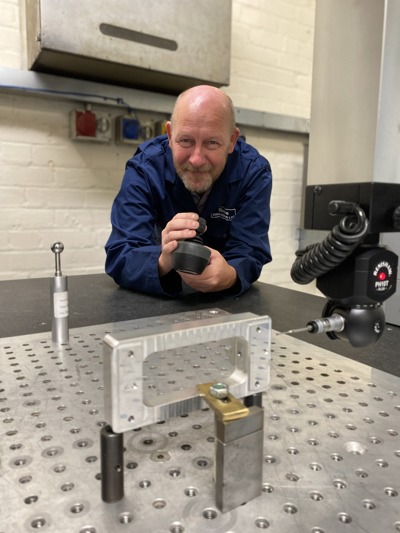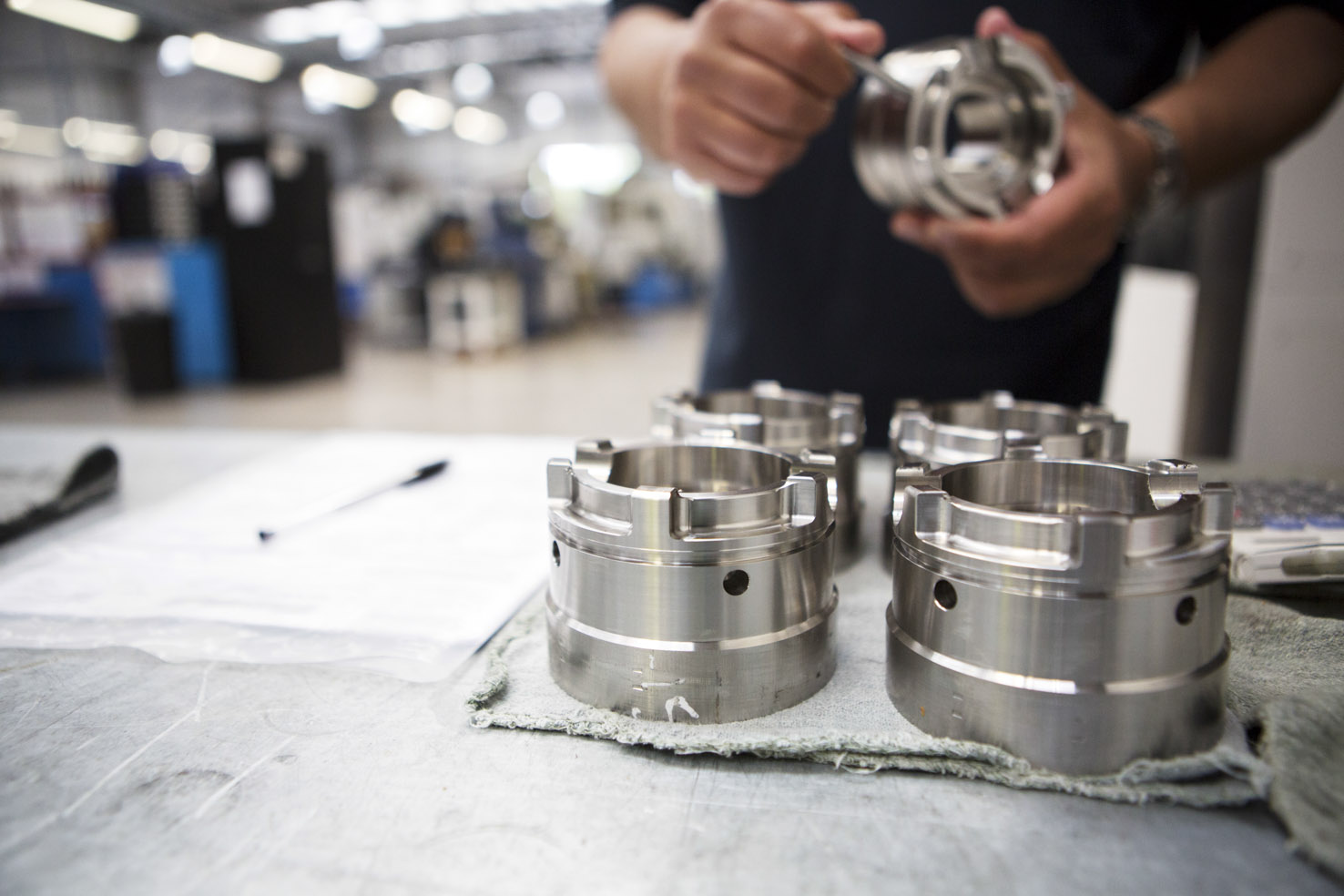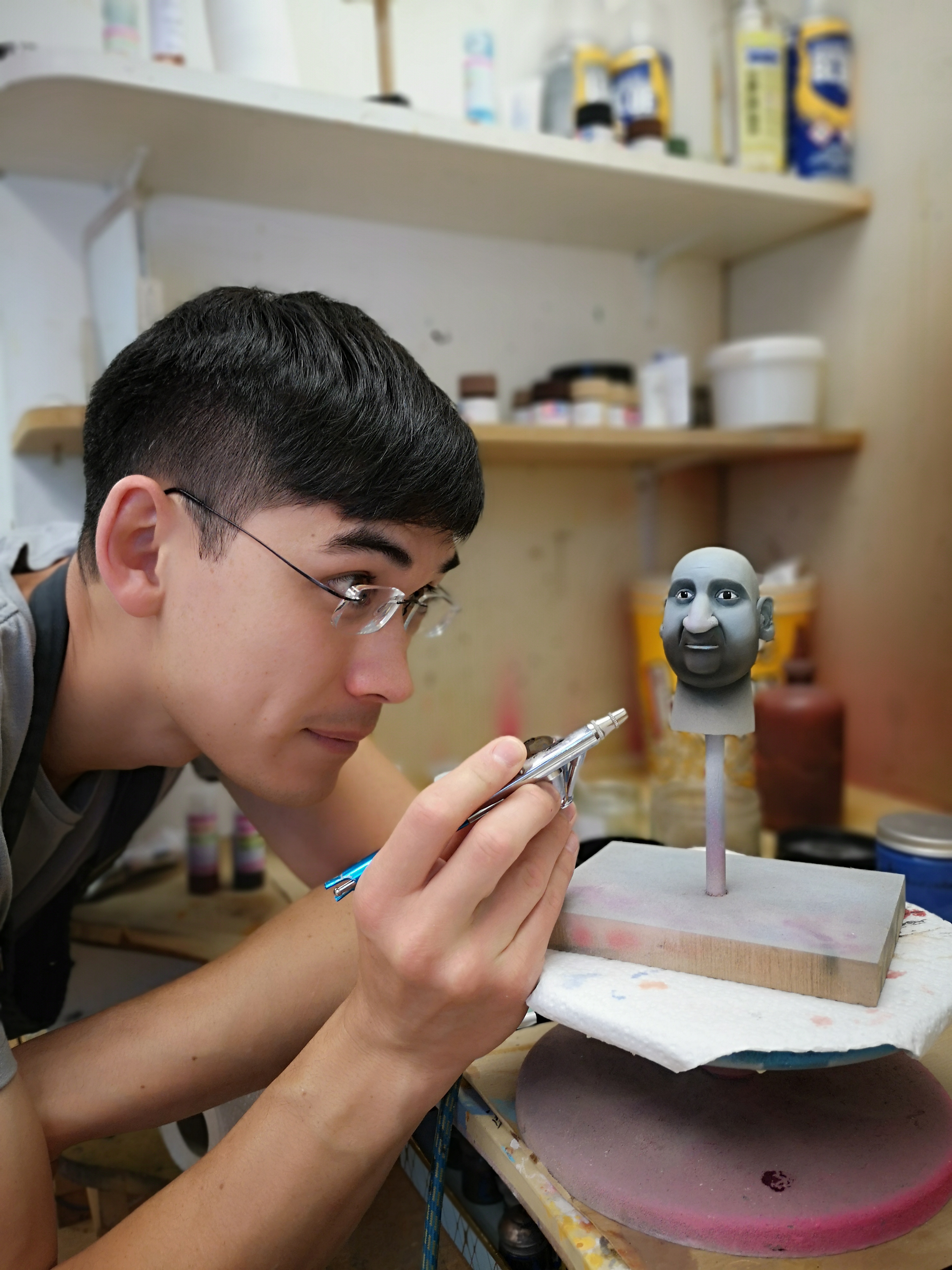
An engineering firm has experienced a phenomenal change in quality control after adopting new inspection technology with the support of Made Smarter.
Blease Engineering, based in Warrington, makes precision machine components, sub-assemblies and fabrications.
Coupled with support from Made Smarter to introduce technologies to reduce paper-based and manual systems and integrate its factory, Blease has invested in a Status CMM (Coordinate Measuring Machine) and PC-DMIS software to measure the geometry of the components it makes.
It has increased the speed of its inspection process from 90 minutes down to three and introduced a level of accuracy that previously didn’t exist in the business.
Blease is now able to offer component inspection as a service and supports its strategy to attract new customers.
View the Case StudyWith the help and advice of Made Smarter we have been able to imbed a layer of digitalisation that has transformed what we do here. It has given us the confidence to pursue continuous improvement and drive efficiencies throughout the business - one step at a time.
Andrew Franchi, Managing Director
While Blease had invested in high tech machinery it was still reliant on paper-based, manual systems of tracing components through the factory.
“To put it bluntly, we’d grown up but never tidied up,” Andrew explained. “We had handwritten root cards moving around the factory, making tracing completely manual and time-consuming. Simple queries took too long. We had antiquated traceability and a basic IT system where computers worked in silos.
Blease saw its digital transformation as an opportunity to improve its quality control and inspection process.
“We have a skilled workforce but occasionally there are errors. Our internal inspections can take days, and we were also subcontracting the work to be able to deliver components on time.
“We needed to be able to inspect all components accurately from a datum position and produce a detailed inspection sheet for customers.”
The data and systems integration project established a new IT infrastructure, creating a network for its operations with new computer terminals and a cloud-based server.
It also introduced production management software and upgraded its CAD/CAM software to Solidcam and Solidworks.
Blease then remodelled its factory, creating a temperature-controlled room for its Status CMM which measures the geometry of products by sensing discrete points on the surface of the object with a probe.
The PC-DMIS metrology software has also been integrated to the network, enabling dimensional measurement data to flow through the business.
Data and systems integration has given Blease a level of oversight and traceability never experienced.
Instant access to customer orders, drawings and oversight of materials and production, means everything takes half the time.
Meanwhile, the CAD/CAM system upgrade has enabled 3D milling and new highly technical manufacturing capabilities.
“We have also prided ourselves on being agile and able to commit to short lead times for our customers. This instant and rapid access to information is game changing for us and takes us to the next level in terms of agility and speed.
“That extra capacity gives us the breathing space we need to accept more work and improve efficiencies across the business.”
The new CMM technology means Blease can now offer a First Article Inspection Report (FAIR) to customers as a new service as well as manufacture the components.
“The CMM gives phenomenal accuracy and insights that no engineer or equipment can do. The time gain is incredible. To fully check a component has been reduced from an hour and hour to three minutes. It’s awesome.”
The CMM also enables Blease to scan and reverse engineer products, while greater accuracy will also reduce the amount of materials waste from rework.
The new technology has supported a workforce restructure which has created a new inspector role and deployed two machine operators to other areas of the factory.
Blease’s investment has put it in a good position to weather the storm of the impact of covid-19. The next stage for Blease’s digital roadmap is to improve its traceability further by adopting barcode tracing for its stock and products.
“While the pandemic has been tough on the business and our supply chain, we have used our time well, laying the groundwork to drive forward the business when things begin to recover,” Andrew explained.
Andrew is keen to embed the correct culture and take the right steps at the right time, an ethos supported by Made Smarter.
“There has been a revolution at Blease, there’s no doubt about it, and I am keen to take it to the next level,” he said. “But we have rightly put the brakes on so we can lay the digital foundations before racing ahead. Some of my employees have been with the company for 30 years plus, so introducing modern approaches and tools to old school engineering mindsets needs a careful approach. Buy-in from my valued workforce is vital for the next stage of our growth to be a success.”
Andrew continues to get support from Made Smarter as his digital plan evolves.
“My previous experience of getting business support and grant funding hasn’t always been easy,” he said. “But, from our first call with Cheshire and Warrington Growth Hub and its signposting to Made Smarter, this process has been seamless, quick and easy. We have been on an incredible journey. It has turned our ideas into real change across the business.”








